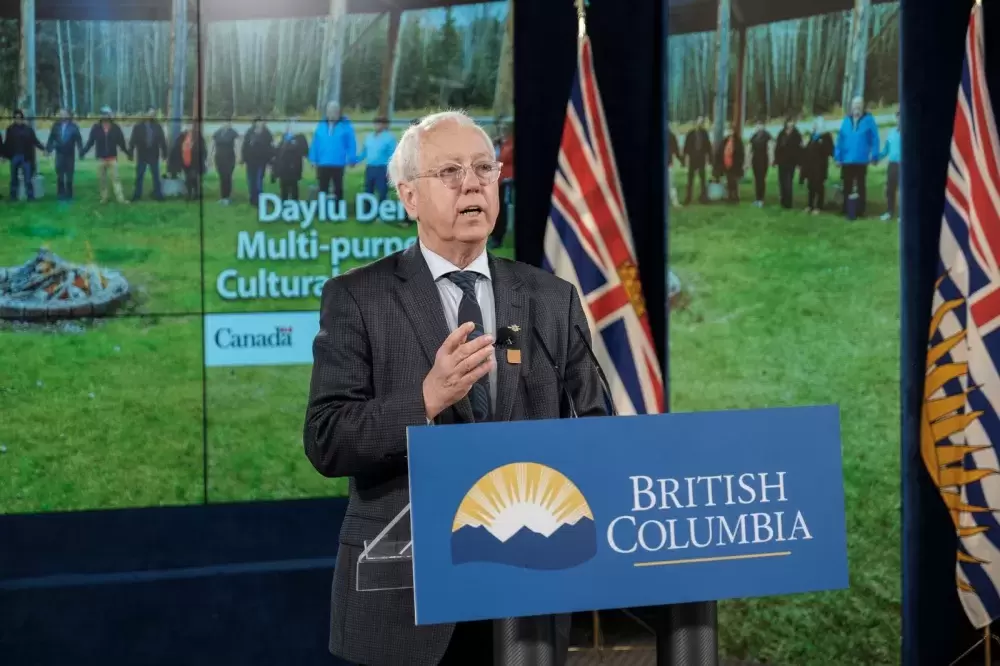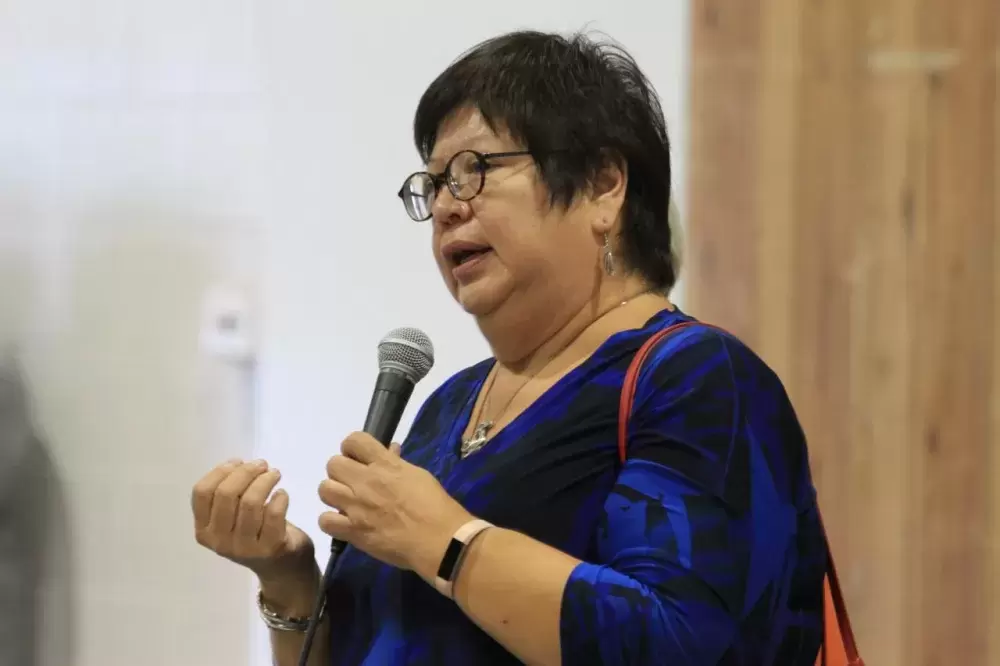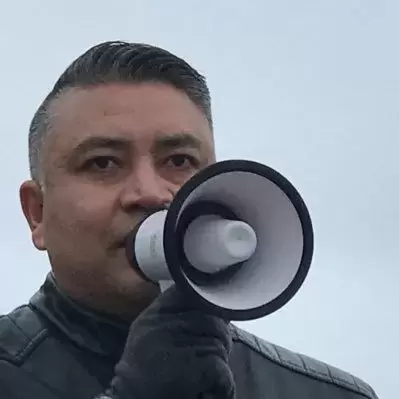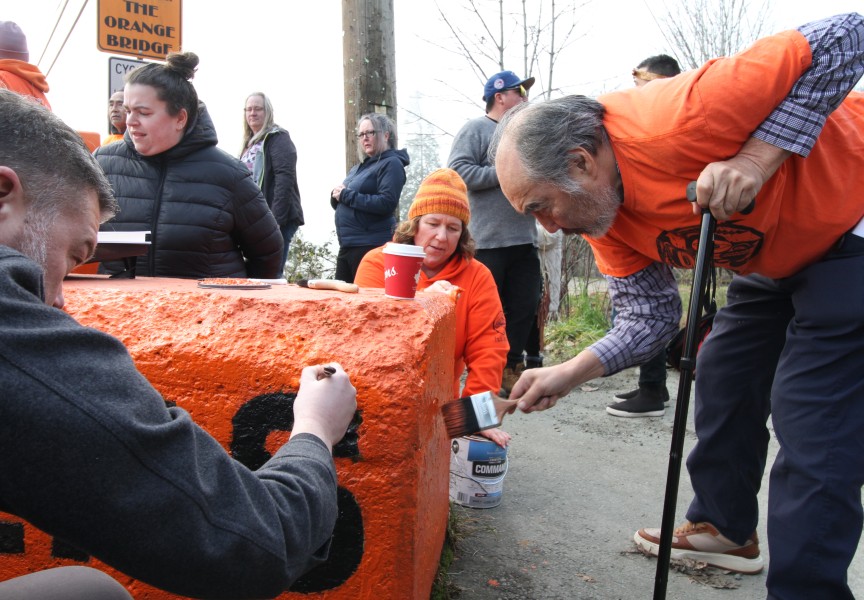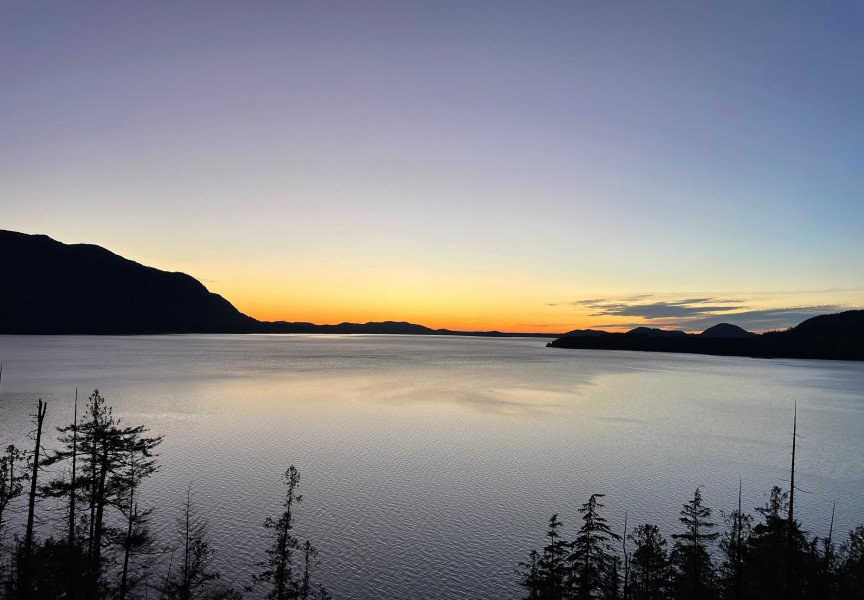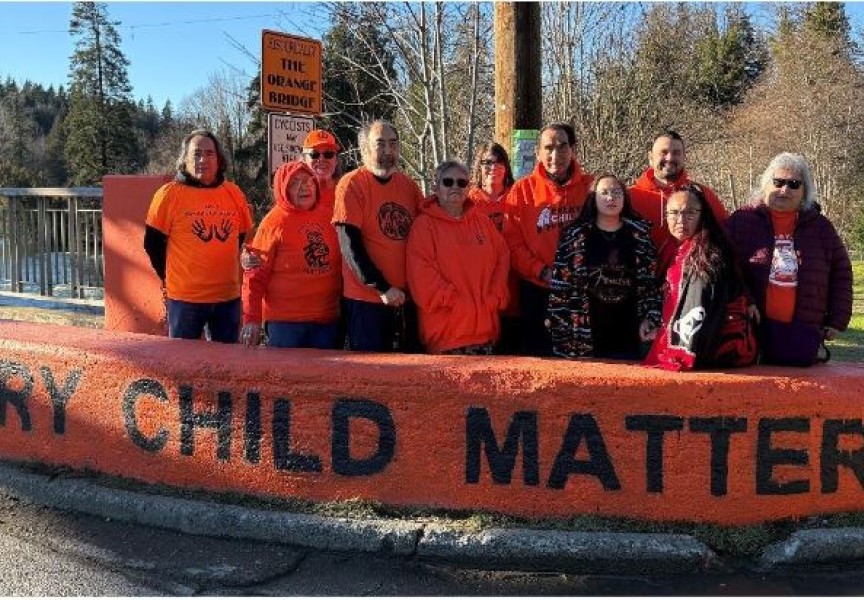Two years after B.C. became the first jurisdiction in Canada to bring into force the UN Declaration on the Rights of Indigenous People, Indigenous leaders are growing increasingly concerned about a lack of engagement, transparency and action.
“Progress, if any, has been very slow and tedious, and we’re uncertain as to what the government is really doing,” said Nuu-chah-nulth Tribal Council President Judith Sayers, who was involved in UNDRIP at international, federal and provincial levels.
DRIPA establishes two basic mechanisms for change: Aligning B.C. statutes with UNDRIP in consultation and in co-operation with all 203 First Nations, and joint decision making or consent prior to decisions on use of statutory powers.
The provincial government is obligated by the Declaration Act (DRIPA) to align its laws with The United Nations Declaration on the Rights of Indigenous Peoples (UNDRIP) and to report annually on progress toward that goal. A draft action plan released in June sets out 79 proposed measures to achieve the goals in the UN declaration within the next five years, but the draft left much to be desired. The completed plan, which was to be released in December, won’t be available until sometime next year.
“This is a government action plan; we need a First Nations action plan,” Sayers said. “I think there’s work going on, but we certainly don’t feel the results of that, and I’m very, very concerned about that.”
The provincial government has been talking with the First Nations Leadership Council (FNLC) — comprised of representatives of the B.C. Assembly of First Nations, First Nations Summit and the Union of B.C. Indian Chiefs (UBCIC) — but the council has no authority to address matters involving rights and title. Sayers doesn’t see that much has changed in the way of implementing DRIPA or including B.C.’s 203 First Nations in decision making.
“It’s not the leadership council that needs to have consultation and co-operation leading to consent,” Sayers said. “That’s just the icing on the top of the cake. They’re not doing the job.”
As the province grappled with widespread flooding and mudslides over the last two weeks, the storm surge grew to be an emergency matter for some. Fraser basin and southern Interior First Nations were evacuated, some completely cut off, others facing destruction of their lands on a massive scale yet without the government assistance seen elsewhere.
FNLC called on provincial and federal governments to commit supports and resources to communities having to cope with cascading crises: 2021 wildfires, COVID-19, the opioid crisis, homelessness and discovery of thousands of unmarked graves at former residential schools.
“We reiterate our call for the province to declare an indefinite state of emergency as this flooding has caused what will most certainly be billions of dollars in damage, indefinite displacement of thousands of people, long-term environmental effects yet to be contemplated and serious long-term disruption in an already fragile supply chain,” said Robert Phillips of the First Nations Summit.
Tuesday, Indigenous Relations Minister Murray Rankin was on the phone with First Nations hardest hit, discussing responses to widespread flooding, including formation of “integrated Indigenous response and recovery deployment teams.” He acknowledged they have more work to do with a need to improve front-line communications with First Nations and streamline supports.
There has been progress on human rights. On Nov. 17, Attorney General David Eby tabled Bills 18 and 29, legislative amendments that would further uphold Indigenous human rights. Both represent important steps to implement DRIPA, Eby said while restating the NDP government’s commitment to reconciliation and combatting racism and discrimination.
B.C. Human Rights Commissioner Kasari Govender said Indigenous leadership together with the Human Rights Tribunal and her office called for Indigenous identity to be explicitly protected in the province’s Human Right’s Code.
“UBCIC supports the new reforms brought in today, but we know we have to double down on the hard work to make real progress and switch from simply promoting the rights of Indigenous Peoples, to implementing the rights of Indigenous Peoples every day in all areas of life in British Columbia,” said Kukpi7 Judy Wilson, secretary-treasurer of UBCIC.
Responding to the amendments, Regional Chief Terry Teegee of the B.C. Assembly of First Nations said they are now beginning to see movement on the immense task of transforming B.C. laws.
But consultation with First Nations on other key legislation of critical importance to them has been lacking or altogether absent, not a hopeful sign the government takes implementation seriously. One example is Bill 22, Freedom of Information and Protection of Privacy Act amendments that were expected to pass before the end of the legislative session. This week, the Union of B.C. Indian Chiefs issued an open letter calling for its withdrawal.
“The bill in its current form fails to uphold First Nations’ unique rights of access to information as many of the proposed amendments will create new barriers for First Nations requiring access to provincial government records to substantiate their historical grievances against the Crown,” the letter states, calling the amendments a contravention of UNDRIP and DRIPA.
By adding a fee for FOI requests — which cannot be waived even when an application is made in the public interest — the province is disproportionately harming First Nation applicants, UBCIC states. The fee violates the UN declaration since it was never discussed with First Nations or their representative organizations, they contend.
Amendments to the Clean Energy Act and the Mental Health Act also proceeded without consultation in 2020.
While the provincial government is working with some First Nations — engaging with Huu-ay-aht, Ditidaht and Pacheedaht through joint forest management talks — it was unclear how much input First Nations had into the province’s old growth strategy, Sayers said.
Then there is the need to develop new, cleaner sources of energy for small and remote communities along the coast. Despite COP 26, the Clean B.C. plan to reduce pollution and a Clean Energy Summit taking place this past week, too few First Nation opportunities are on the table, she said.
All of this leads Sayers to question whether old attitudes have changed and the Ministry of Indigenous Relations and Reconciliation has the staff resources to handle the enormous and complex task at hand. She wants to see an independent secretariat with Indigenous representation that can wield the power to compel government to follow through on DRIPA commitments.
“I just don’t see the change in attitude that we need,” she said.

